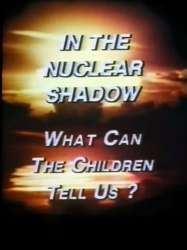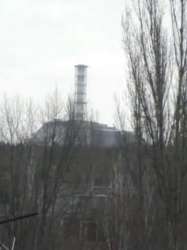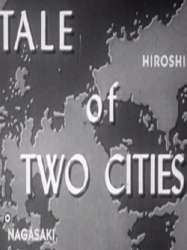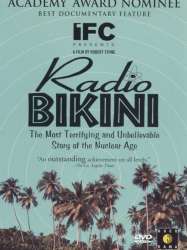Kahl is a film of genre Documentary
Kahl (1961)

If you like this film, let us know!
- Infos
- Casting
- Technical infos
- Photos
- Videos
- Film quotes
- Characters
- Music
- Awards
Length 12minutes
Genres Documentary
Themes Environmental films, Documentary films about environmental issues, Documentary films about nuclear technology, Documentary films about technology
Rating61%










Kahl is a 1961 West German short documentary film about the Kahl Nuclear Power Plant. It was nominated for an Academy Award for Best Documentary Short.
Comments
Leave comment :
Suggestions of similar film to Kahl
There are 8971 with the same cinematographic genres, 1033 films with the same themes (including 62 films with the same 4 themes than Kahl), to have finally 70 suggestions of similar films.If you liked Kahl, you will probably like those similar films :

Pandora's Promise (2013)
, 1h27Origin USA
Genres Documentary
Themes Environmental films, Documentary films about environmental issues, Documentary films about nuclear technology, Documentary films about technology
Rating72%





 , 25minutes
, 25minutesOrigin USA
Genres Documentary
Themes Environmental films, Documentary films about environmental issues, Documentary films about war, Documentary films about historical events, Documentary films about nuclear technology, Documentary films about technology
Rating19%






White Horse (2008)
, 18minutesOrigin USA
Genres Documentary
Themes Environmental films, Documentary films about environmental issues, Documentary films about historical events, Documentary films about nuclear technology, Documentary films about technology, Disaster films
Rating69%





The beginning of the film starts with DeLeo, Bisson and Surkov driving through Kiev. This is introduced as the beginning of their journey to Pripyat, near the ground zero of Chernobyl. Once they reach the outpost outside the exclusion zone, we see that the area surrounding Pripyat is very deserted and dark. Once in the city, we see Surkov's old home, which he explains has been robbed of almost all its belongings due to looters. Yet there are still some mementos in the old apartment, including the wallpaper he and his mother put up, the training bars his father bought for him, an old rubber ball he claims was his favorite and a white horse poster plastered on the wall of his old bedroom. The pain he feels is evident. When he sees an old calendar on a door, he rips a large portion off, claiming "the year ended on April 26th". Outside the door of the apartment, he remarks how he wishes he could stay forever. He throws his old ball through the door and walks out of the apartment complex. The film ends with Surkov snapping some twigs in an old courtyard and then an image of the car they traveled in leaving the exclusion zone.

The Return of Navajo Boy (2000)
, 52minutesOrigin USA
Genres Documentary
Themes Environmental films, Documentary films about business, Documentary films about law, Documentary films about environmental issues, Documentary films about nuclear technology, Documentaire sur une personnalité, Documentary films about technology
Rating26%






Chernobyl.3828 (2011)
, 30minutesOrigin Ukraine
Genres Documentary, Historical
Themes Environmental films, Documentary films about environmental issues, Documentary films about historical events, Documentary films about nuclear technology, Documentary films about technology, Disaster films
Rating74%





Twenty-five years have passed since Valeriy Starodumov worked as a dosimeter scout in September 1986. Valeriy worked at the epicenter of the explosion, the reactor's operation area, which was the most radioactive part of the site. The protagonist, a direct participant in the operation, went to the roof himself and brought people there after a failed attempt to clear the area with robots. At the government level, it was decided to assign soldiers and cadets of military schools to the task of cleaning the roofs. Unique pictures of the events of 1986 are widely used in the film. "Chernobyl.3828" is dedicated to people who saved the world from the radioactive contamination at the cost of their health and life.

Tale of Two Cities (1946)
, 12minutesOrigin USA
Genres Documentary
Themes Environmental films, Seafaring films, Transport films, Aviation films, Documentary films about environmental issues, Documentary films about war, Documentary films about historical events, Documentary films about nuclear technology, Documentary films about technology, Political films, Documentary films about World War II

The Russian Woodpecker (2015)
, 1h20Origin USA
Genres Documentary, Historical
Themes Environmental films, Documentary films about environmental issues, Documentary films about historical events, Documentary films about nuclear technology, Documentary films about technology, Disaster films
Rating66%





The films focuses on Fedor Alexandrovich's research into the cause of the Chernobyl nuclear disaster in Ukraine and its potential connection to a Soviet Cold War-era structure, the Duga over-the-horizon radio antenna. His investigation is interrupted and impacted by the 2014 EuroMaidan uprising, which eventually led to the ouster of the pro-Russian president Viktor Yanukovych.

Original Child Bomb (2004)
, 57minutesGenres Documentary
Themes Environmental films, Seafaring films, Transport films, Aviation films, Documentary films about environmental issues, Documentary films about war, Documentary films about historical events, Documentary films about nuclear technology, Documentary films about technology, Political films, Documentary films about World War II
Rating68%





Original Child Bomb begins with a recreation of the dropping of Little Boy from the perspective of Hiroshima's residents. It is joined with both historical and contemporary footage and overlaid with various voice-overs. The documentary moves on to offer the accounts of several Japanese witnesses of the atomic bombing destruction.

Rokkasho Rhapsody (2006)
, 1h59Directed by Hitomi Kamanaka
Genres Documentary
Themes Environmental films, Documentary films about environmental issues, Documentary films about nuclear technology, Documentary films about technology
Rating63%






Radio Bikini (1988)
, 56minutesOrigin USA
Genres Documentary
Themes Environmental films, Seafaring films, Transport films, Documentary films about environmental issues, Documentary films about war, Documentary films about historical events, Documentary films about nuclear technology, Documentary films about technology
Rating74%





 Connection
Connection